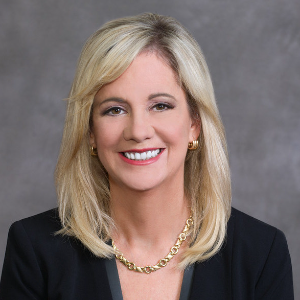Abstract:
Lethality, availability and use of stimulants have greatly increased in the US in past years. The Centers for Disease Control and Prevention has reported that overdose deaths have more than tripled for cocaine and increased nearly five-fold for methamphetamine since 2012. A UN report shows Colombian coca production more than tripled between 2012 and 2016 while over the same period, prices fell 23%, and purity increased nearly 20%. The threat from meth includes a new wave of purer methamphetamine and cocaine, coming directly from Mexico, not “backyard cookeries, houses or sheds.” Some areas of the country have seen staggering increases in meth seizures as high as 1600%. USA Today reports that “people addicted to opiates hear others talk about a new high, cheap and easy to get and safer than fentanyl. Meth is that alternative.” With more than 130 deaths every day in this country attributed to opioid overdose, there is understandable – and much appreciated – attention to this issue. A significant increase in overdose death rates from synthetic opioids such as fentanyl make it very clear that we must continue to address the threat from the opioids in this country.
These two major drug problems, and our field, are now impacted by an unprecedented 3rd threat in this country, that of the Covid-19 pandemic. At the time of this writing, just over 1.5 million Americans have tested positive for Covid-19 and 93,705 people have died of this disease. Individuals struggling with substance use disorder (SUD) or those in recovery may find COVID-19 and the non-medical impacts of COVID-19 more difficult than the general population. Individuals with SUD are more vulnerable to getting COVID-19 and more likely to have severe cases when they do get it. There has been an increase in substance use for those with a period of remission, particularly those with 3-12 months in recovery. Social isolation has led to increases in depression, anxiety, domestic violence, and other mental health disorders. With this “triple threat” of opioids, stimulants, and Covid-19, we need to rethink how we deliver assess, support, and deliver treatment to those with SUD. This is particularly true for cocaine and amphetamines as there is no “gold standard” of treatment and no effect medications available.
Biography:
Deni Carise, Ph.D. is a Clinical Psychologist and part of the recovery community for over 35 years. She is a founder and Chief Science Officer of Recovery Centers of America (RCA).
RCA treatment and recovery campuses include detoxification, residential, partial hospital, intensive and traditional outpatient, and family services, all available on one campus. RCA has 9 campuses, multiple, local satellite outpatient programs and three opioid treatment programs.
Deni has held similar positions at CRC Health Group, providing behavioral health services to more than 42,000 men, women and teens every day at more than 140 programs in 33 states and Phoenix House, a nonprofit substance abuse treatment provider with over 100 programs in 10 states where Dr Carise developed national standards for clinical care, Clinical Toolkits for over 30 evidence-based practices, and helped usher in a new era of care to position the company to successfully address changes secondary to healthcare reform. Dr Carise was also Chief Clinical Advisor for Sierra Tucson, a premier facility treating substance abuse, pain, mood, eating and trauma disorders.
Dr Carise was an NIH-funded scientist and Director of the Treatment Systems Section at Treatment Research Institute. At TRI from 1994 to 2010, she made significant advances in the quality of substance abuse treatment through the development, application, and research of new interventions, systems, and technologies through receipt of numerous NIH and other federal grants. She has published over 100 articles, books, and chapters.
Dr Carise is currently an Adjunct Assistant Professor at the University of Pennsylvania, Perelman School of Medicine (since 1997). She has been affiliated with UPENN since completing a NIDA Post-Doctoral fellowship at the Center for Studies of Addiction in the Department of Psychiatry from 1994-1996. She earned both her bachelor’s degree and Doctorate in Clinical Psychology from Drexel/ Hahnemann University, she interned in Baltimore at Homewood (part of the Johns Hopkins Health system) and Union Memorial hospitals in behavioral medicine.
She has worked extensively internationally, with treatment providers in Nigeria, Mexico, Thailand, Egypt, Greece, Singapore, Brazil, and China and numerous other countries to help develop national systems that integrate scientifically-validated tools into clinical treatment delivery.
Committed to the accurate portrayal of addiction, treatment, and recovery in the media, Dr. Carise consulted on 2 major films; Martin Scorsese’s Wolf of Wall Street, teaching the lead cast on depicting characters under the influence of cocaine and other drugs, and Sno Babies, out in 2020 working with the cast, director and producers on the portrayal of heroin addiction, recovery and drug culture. She is also featured in numerous national news media segments (Nightline, MSNBC, Fox News, ABC, CBS and NBS evening news, Access Hollywood, the Today Show),
and has also been quoted in popular newsprint media such as US News and World Report, Fox News, Wall Street Journal, and others. Dr. Carise has presented over 200 lectures by invitation (approximately 35 internationally). She is also a frequent blogger on Huffington Post (http://www.huffingtonpost.com/deni-carise) and is an active voice on LinkedIn, Facebook Live, and Twitter focusing on topics including treatment, recovery, prescription drug abuse, the media’s portrayal of drug problems, and emerging drug trends.




